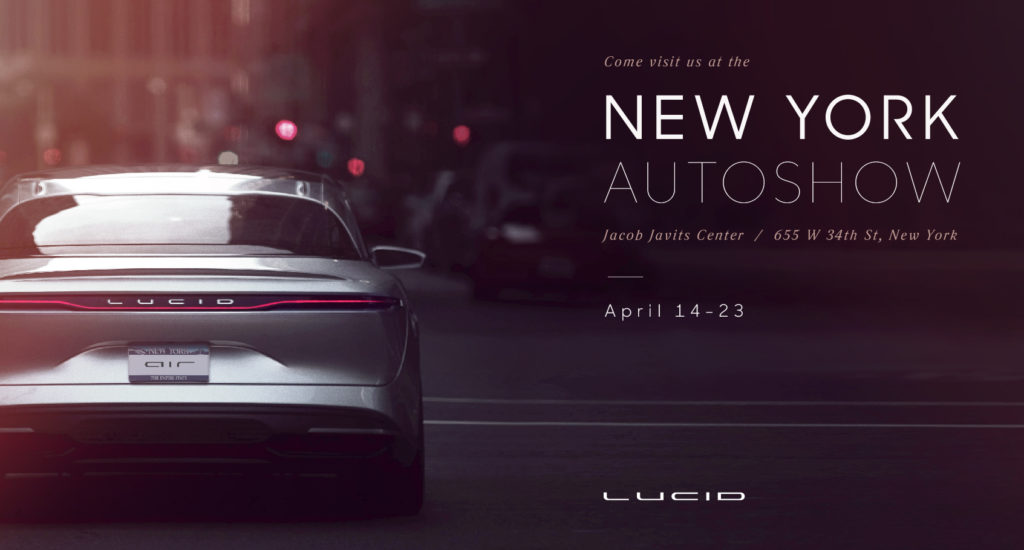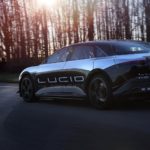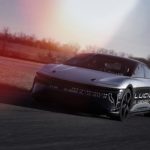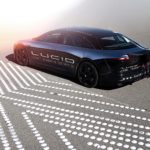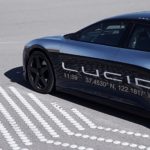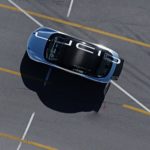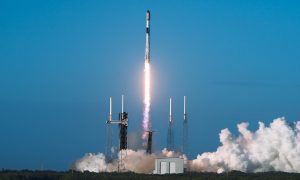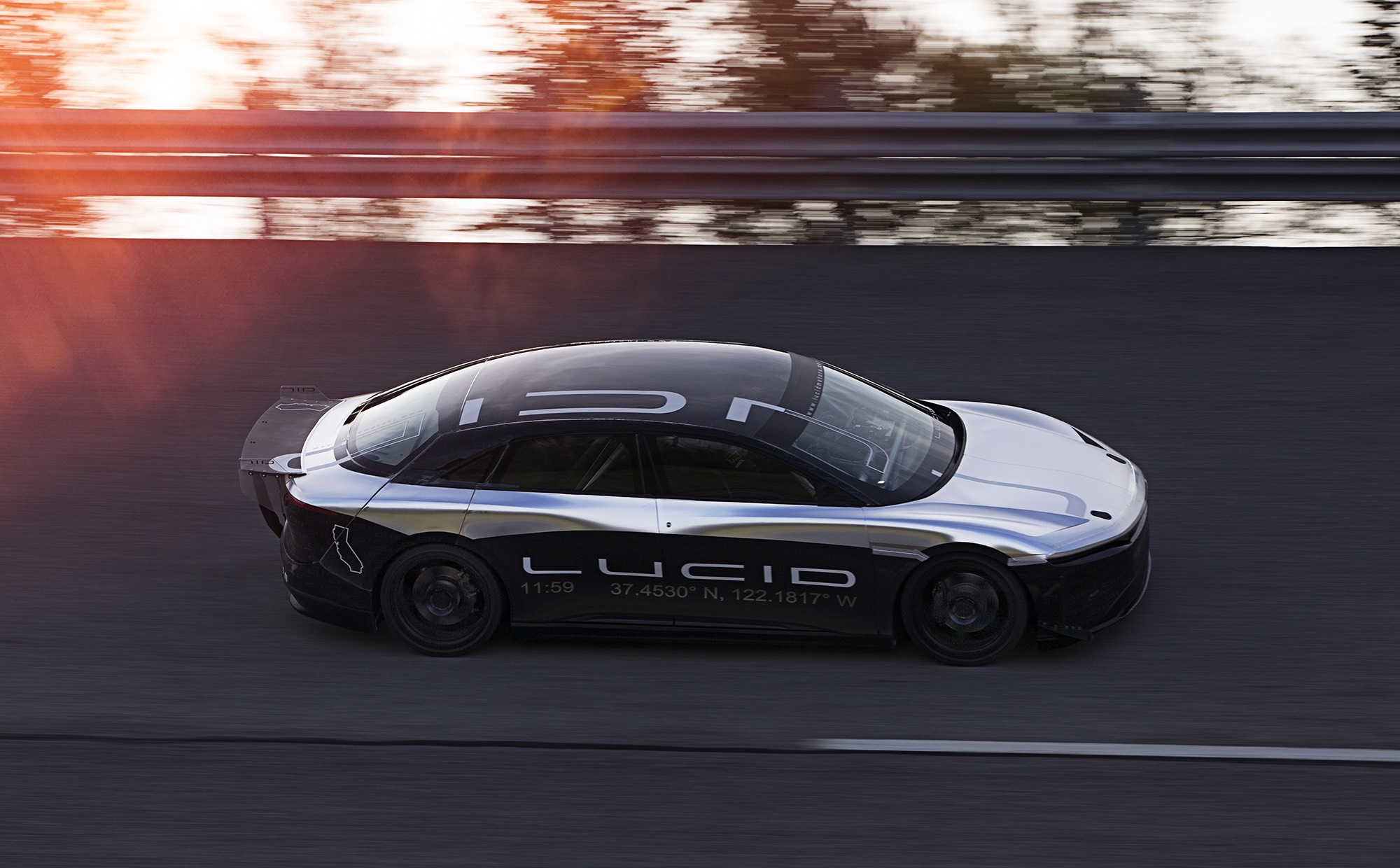

News
All-electric Lucid Motors ‘Air’ reaches 217 mph in high speed stability test
Making a grand entrance at the 117th-annual New York International Auto Show today is electric car startup Lucid Motors. The California-based maker of the “private jet on wheels” is debuting its ultra luxury Lucid ‘Air’ along with its Alpha Speed Car, which recently completed its first high-speed stability test at a software limited 217 mph (350km/h).
The fully autonomous capable Lucid Air represents a new take on luxury vehicles, packing in amenities often found in private jets and boasts expansive space with an exterior footprint of a mid-sized car. On paper, the Air may seem like a direct competitor with current Silicon Valley sweetheart, Tesla’s Model S. However, one can argue that the Lucid Air – with its Maybach quality interior and unprecedented performance – is better equipped to stand in a class of its own. The Air will ship with autonomous ready hardware, and when paired with the distinct focus on passenger comfort and luxury, the all electric powertrain that’s capable of 400 miles of range and 1,000 horsepower starts feeling like a different kind of experience altogether. Impressively, the luxury of the Air will start at just $52,500 after federal tax credits, which is a sizable savings from the costlier Tesla Model S.
ALSO SEE: Tesla Model S vs. Lucid Air: comparison of range, performance and price
Lucid Motors is raising capital to build out the first phase of manufacturing from its upcoming plant in Casa Grande, Arizona. The $700 million factory is expected to begin production on the Lucid Air in 2019 and produce 10,000 vehicles within the first 12 months. Lucid Motors revealed through today’s press release that the factory will reach full capacity in 2022 and produce 130,000 vehicles annually.
The company also announced through the press release that it has begun high speed testing of an Alpha prototype of the Air.
“In preparation for production, Lucid Air Alpha prototypes are undergoing a rigorous development program. Lucid has designated one of these test prototypes as a high-performance test vehicle and has installed a roll-cage for safety purposes. The Alpha Speed Car will be used for evaluating at-the-limit performance.”
Lucid completed the high speed stability on a 7.5 mile oval race track at the independent automotive testing ground TRC Ohio. The vehicle was able to successfully complete the stability and high speed testing at a staggering 217mph (350km/h).
Here are some amazing photos captured during the high speed run.
Unlike Tesla which produces lithium ion battery cells with partner Panasonic, Lucid has locked in an exclusive battery deal with Samsung SDI and will utilize “next-generation cylindrical cells that are able to exceed current performance benchmarks in areas such as energy density, power, calendar life and safety”, according to an announcement made by the company.
Results from Lucid’s 217 mph high speed testing would indicate that the company may have developed a sophisticated battery thermal management system that allows the battery pack to supply maximum output to the vehicle’s high efficiency motor. Lucid Motors Chief Technology Officer Peter Rawlinson has taken his years of experience, previously working at Tesla where he served as Chief Engineer, and rolled that into a battery management system that overcomes thermal limitations faced by Tesla’s system. The Electric GT all-Model S race team experienced some overheating issues after spending time on the racetrack with their Model S:
“The problem is the car has thermal limitations. You can have a very fast car on a qualifying lap, then it goes back to nominal power for 15 or 16 laps…If you save the temperature you can peak it again. The challenge will be to drive as quickly as possible without overheating the motor.”
Only time will tell if Lucid Motors can deliver on its grand vision of the future. If the test drive we took in Los Angeles is any indicator of what’s to come, Lucid Motors is on track to live up to its promises, tenfold.
Lucid Air Makes International Auto Show Debut in New York
Luxury electric sedan completes first high speed stability test at 217 mph
New York, NY, April 13, 2017 – Lucid Motors made its global auto show debut today at the 117th-annual New York International Auto Show. The company showed the Lucid Air luxury electric sedan and also presented its Alpha Speed Car test vehicle, which had just completed its first high-speed stability test at 217 mph.
Lucid Air: Leading the Charge in Luxury Mobility
The Lucid Air was first unveiled in December 2016. The all-electric sedan combines forward- looking design with groundbreaking technology to establish an entirely new class of vehicle. Featuring full-size interior space in a mid-size exterior footprint, the autonomous-ready Air will be available with up to 400 miles of range and 1,000 horsepower.
The Air will be manufactured in Casa Grande, Arizona. The factory, first announced in November 2016, will come online in 2019 and build 10,000 vehicles in the first 12 months. By 2022 the factory is expected to employ 2,000 full-time employees and manufacture up to 130,000 vehicles annually.
The Lucid Air is priced from $52,500 after federal tax credits. The base Lucid Air will feature a 400-horsepower motor, rear-wheel drive, and a 240-mile range. Deliveries will begin in 2019. Customers can pre-order the Air at https://lucidmotors.com/car/reserve.
High Speed Testing: Evaluating Stability and Durability at 217 mph
In preparation for production, Lucid Air Alpha prototypes are undergoing a rigorous development program. Lucid has designated one of these test prototypes as a high-performance test vehicle and has installed a roll-cage for safety purposes. The Alpha Speed Car will be used for evaluating at-the-limit performance.
For the Alpha Speed Car’s first testing session, Lucid headed to TRC Ohio to use their 7.5-mile oval to evaluate high-speed behaviors, including vehicle stability and powertrain thermal management. The test, software-limited to 217mph (350km/h), was successful in demonstrating the capabilities of the car and in finding areas for improvement that could not be properly evaluated in static bench tests.
Real-world tests are an important part of the engineering process, allowing the team to correlate computer simulation models with real-world performance. The collected data will now be used to finesse thermal and aero computer simulations and to make further performance improvements that will be tested later this year at higher speeds.
A video of the test can be seen at https://youtu.be/7k03MH7ztUs.
News
Tesla Robotaxi has already surpassed Waymo in this key metric
Tesla Robotaxi has already overtaken Waymo in Austin in one key metric, but there’s still more work to do.

Tesla Robotaxi has already surpassed Waymo in one extremely important key metric: size of service area.
Tesla just expanded its service area in Austin on Monday morning, pushing the boundaries of its Robotaxi fleet in an interesting fashion with new capabilities to the north. Yes, we know what it looks like:
🚨 Tesla’s new Robotaxi geofence is…
Finish the sentence 🥸 pic.twitter.com/3bjhMqsRm5
— TESLARATI (@Teslarati) July 14, 2025
The expansion doubled Tesla Robotaxi’s potential travel locations, which now include the University of Texas at Austin, a school with over 53,000 students.
The doubling of the service area by Tesla has already made its travel area larger than Waymo’s, which launched driverless rides in October 2024. It became available to the public in March 2025.
According to Grok, the AI agent on X, Tesla Robotaxi’s current service area spans 42 square miles, which is five square miles larger than Waymo’s service area of 37 square miles.
Tesla Robotaxi (red) vs. Waymo geofence in Austin.
Much can be said about the shape… but the Robotaxi area is now ~3.9 mi² (10 km²) larger than Waymo’s!! pic.twitter.com/dVfh2ODxJC
— Robin (@xdNiBoR) July 14, 2025
The service area is one of the most important metrics in determining how much progress a self-driving ride-hailing service is making. Safety is the priority of any company operating a ride-hailing network, especially ones that are making it a point to use autonomy to deploy it.
However, these companies are essentially racing for a larger piece of the city or cities they are in. Waymo has expanded to several different regions around the United States, including Arizona and Los Angeles.
Tesla is attempting to do the same in the coming months as it has already filed paperwork in both California and Arizona to deploy its Robotaxi fleet in states across the U.S.
As the platform continues to show more prowess and accuracy in its operation, Tesla will begin to expand to new areas, eventually aiming for a global rollout of its self-driving service.
News
Tesla Megapacks arrive for massive battery replacing coal plant
Tesla Megapacks have started arriving on-site to the Stanwell Battery Project, just as Queensland prepares to wind down the Stanwell coal plant.
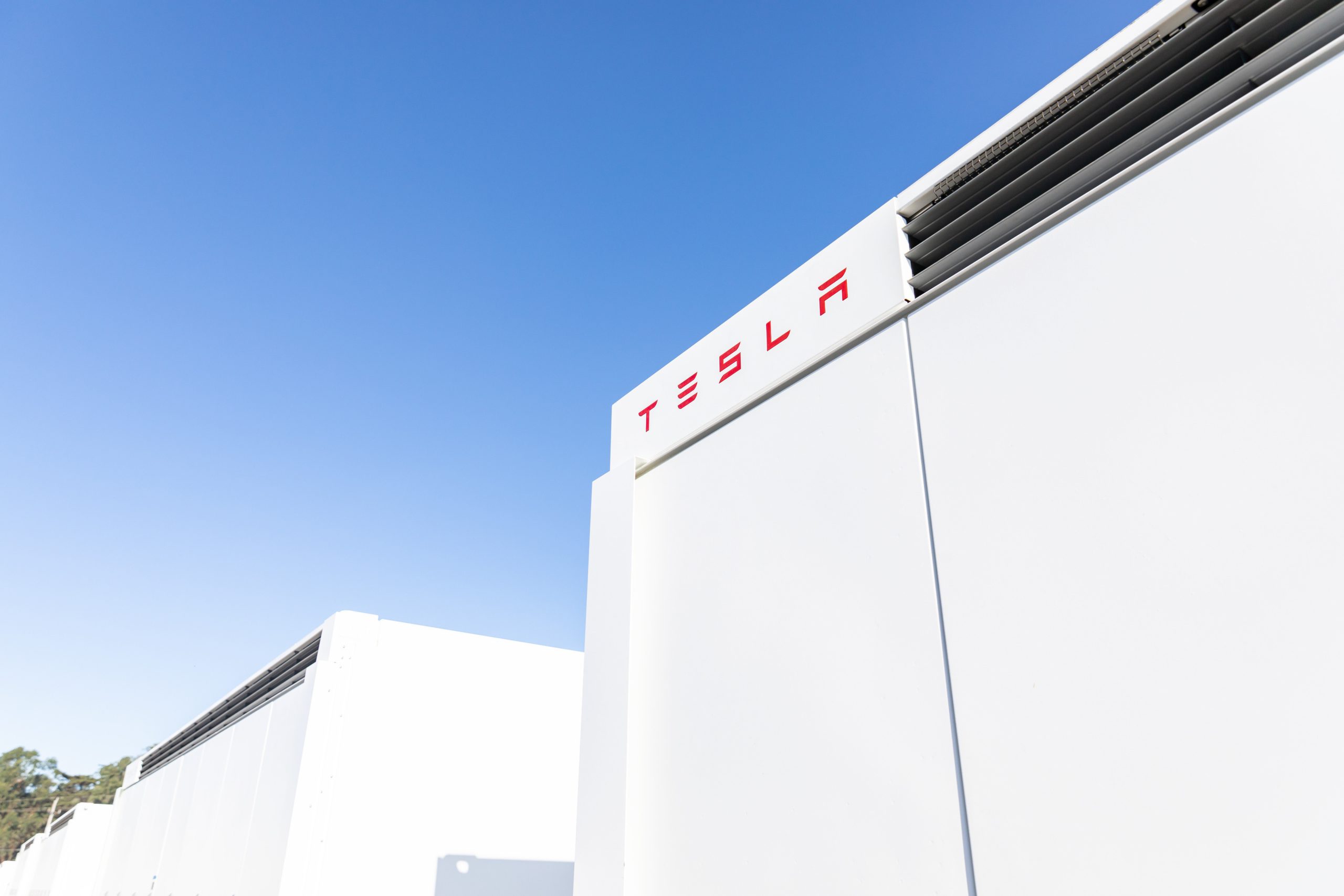
The first of over 300 Tesla Megapacks have arrived to the site of a massive battery energy storage system (BESS) being built in Australia, dubbed the Stanwell Battery Project after a coal plant it’s set to replace.
In a press release last week, the Stanwell Battery Project announced that the first Tesla Megapack 2XL units had arrived to the site, which is located outside of Rockhampton in Queensland, Australia. The project will eventually feature 324 Megapack units, set to arrive in the coming months, in order to support the 300MW/1,200MWh battery project.
“The Stanwell Battery is part of the diversification of our portfolio, to include cleaner and more flexible energy solutions,” said Angie Zahra, Stanwell Central Generation General Manager. “It is just one part of the 800 MW of battery energy storage capacity we have in our pipeline.
“Capable of discharging 300 MW of energy for up to four hours (1,200 MWh), our mega battery will be one of the largest in Queensland.”
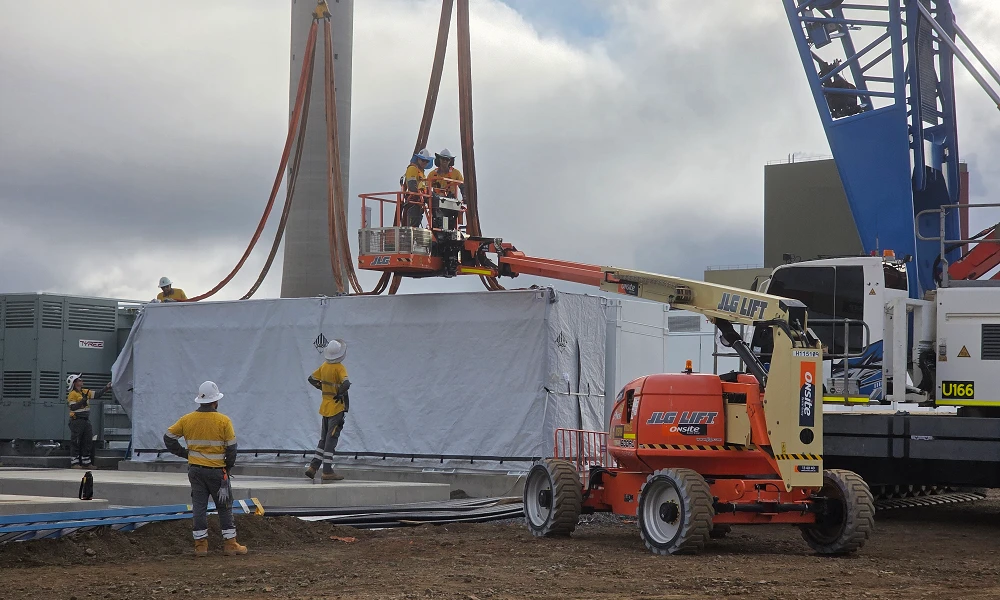
Credit: Stanwell
Did you know Tesla’s Lathrop facility churns out a Megapack every 68 minutes? That’s enough energy to power 3,600 homes for an hour per unit! ⚡️ pic.twitter.com/bG6fpHkB9O
— TESLARATI (@Teslarati) June 11, 2025
READ MORE ON TESLA MEGAPACKS: Tesla Lathrop Megafactory celebrates massive Megapack battery milestone
The state is working with government-owned company Yurika to facilitate construction, and the process is expected to create roughly 80 jobs. The project is expected to come fully online in May 2027, with initial commissioning of the Megapacks aiming for November 2025.
The Stanwell Battery is set to replace the nearby Stanwell coal generation plant, which the government is planning to wind down starting in 2026 as part of efforts to reach an 80 percent renewable energy generation ratio by 2035. Meanwhile, the government is also set to begin winding down the Tarong and Callide coal plants, while several other Megapack projects are being built or coming online. o ya
Tesla currently has two Megapack production facilities, located in Lathrop, California, in the U.S. and another that came online earlier this year in Shanghai, China. The Shanghai Megafactory shipped its first units to Australia in March, while both factories are expected to be capable of producing 10,000 Megapack units per year upon reaching volume production.
News
The Tesla Diner is basically finished—here’s what it looks like
The company first broke ground on the Diner, Drive-in, and Supercharger location in September 2023. Now, it has served one of its first internal customers.

Tesla has finally completed the construction of its highly anticipated Diner, Drive-in, and Supercharger in Los Angeles, and recent photos of the interior’s “retro-futuristic” style are making their way around the internet.
X user Brad Goldberg shared photos from the Tesla Diner site last Tuesday, depicting some of the Supercharger stalls, indoor and outdoor seating areas, multiple neon lights, and even an Optimus robot. Goldberg also noted that there had been a “flurry of activity on site” while he was snapping the photos last week, suggesting that the restaurant location could be getting close to opening.
The Tesla Diner also served one of its first internal customers in the past few days, as Elon Musk posted on X on early Monday morning that he had just finished up eating a meal at the site:
I just had dinner at the retro-futuristic Tesla diner and Supercharger.
Team did great work making it one of the coolest spots in LA!
The photos also show that the site is pretty much done, with some of them even showing vehicles charging at the charging stalls.
You can see some of the latest photos of the Tesla Diner below.
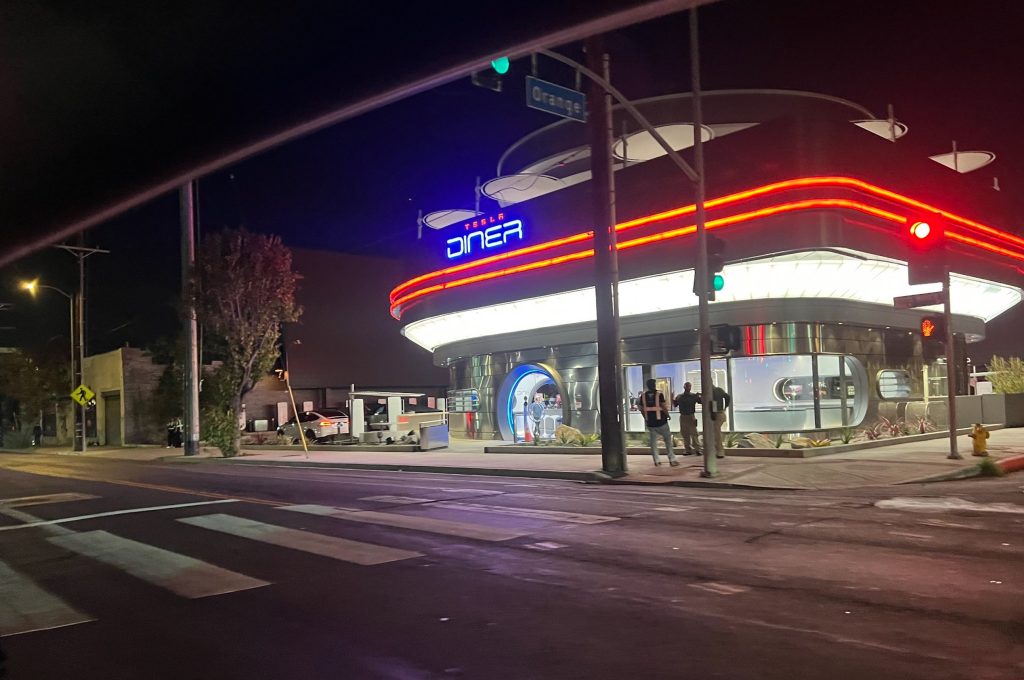
Credit: BradGoldbergMD | X
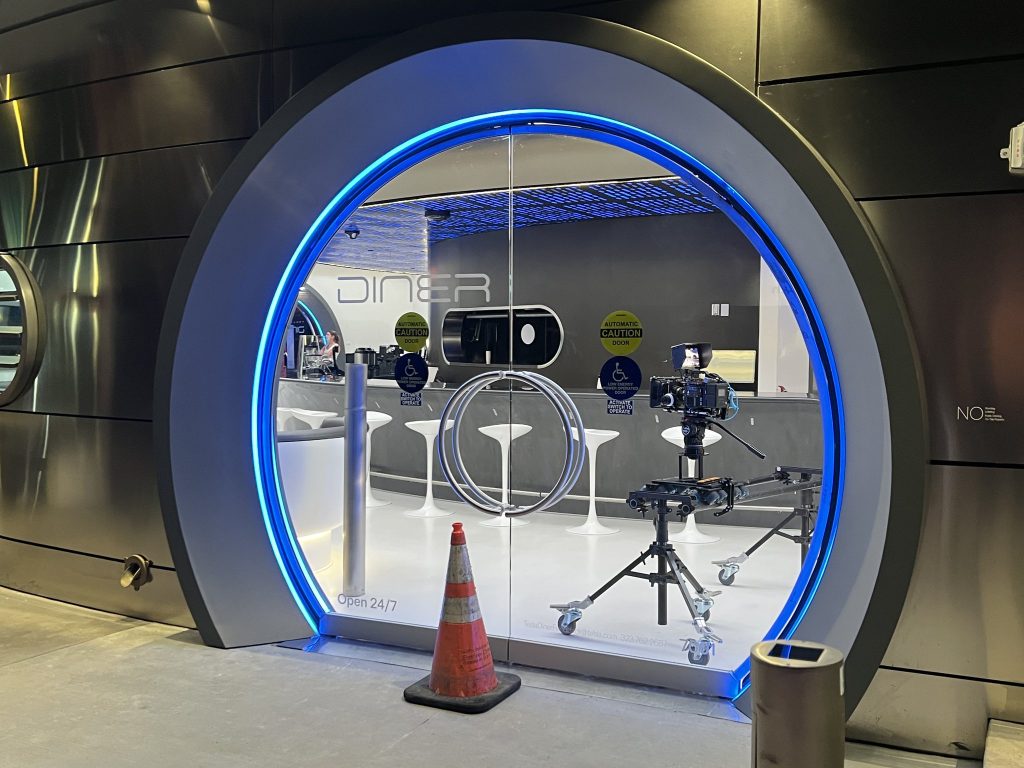
Credit: BradGoldbergMD | X
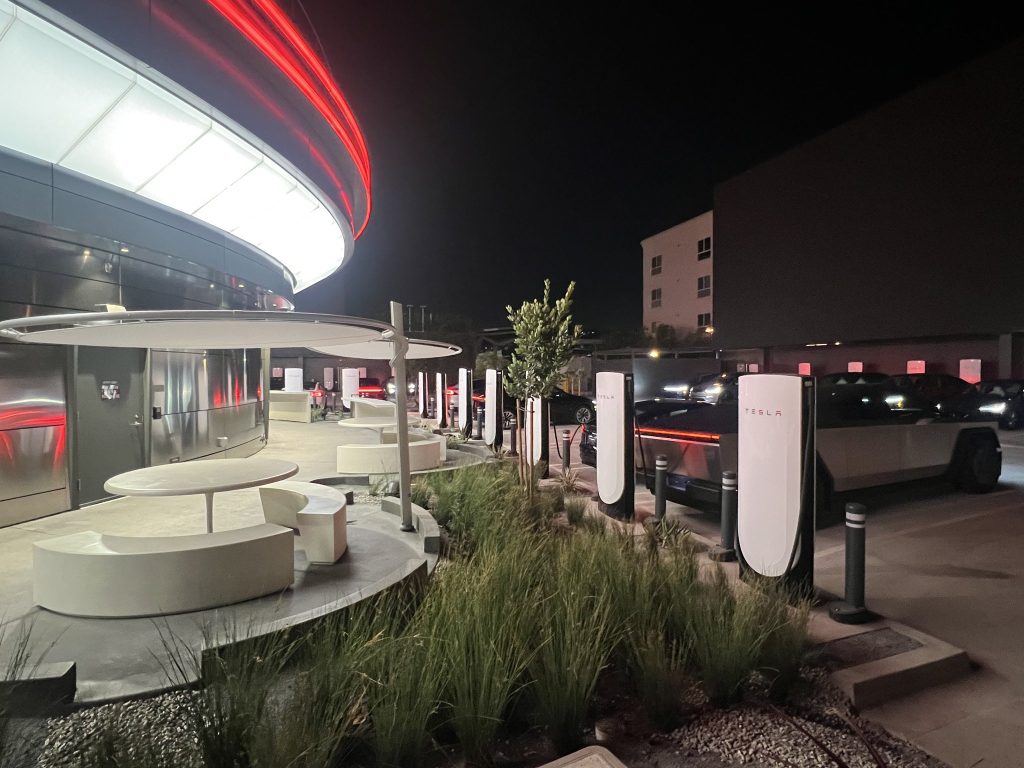
Credit: BradGoldbergMD | X
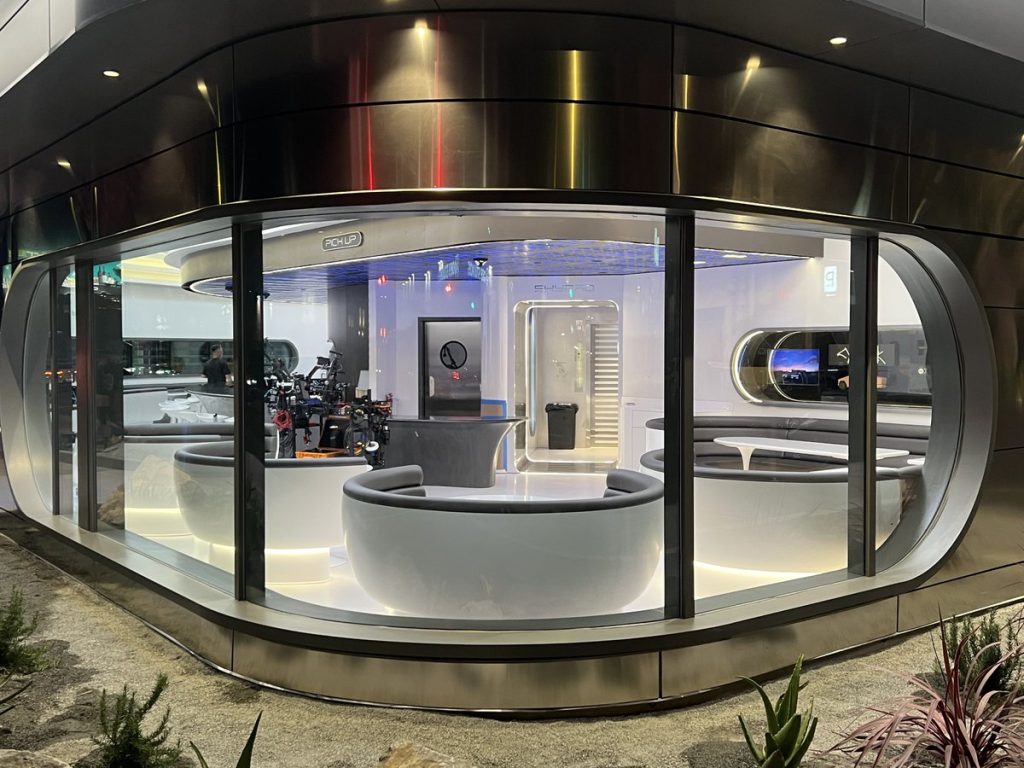
Credit: BradGoldbergMD | X
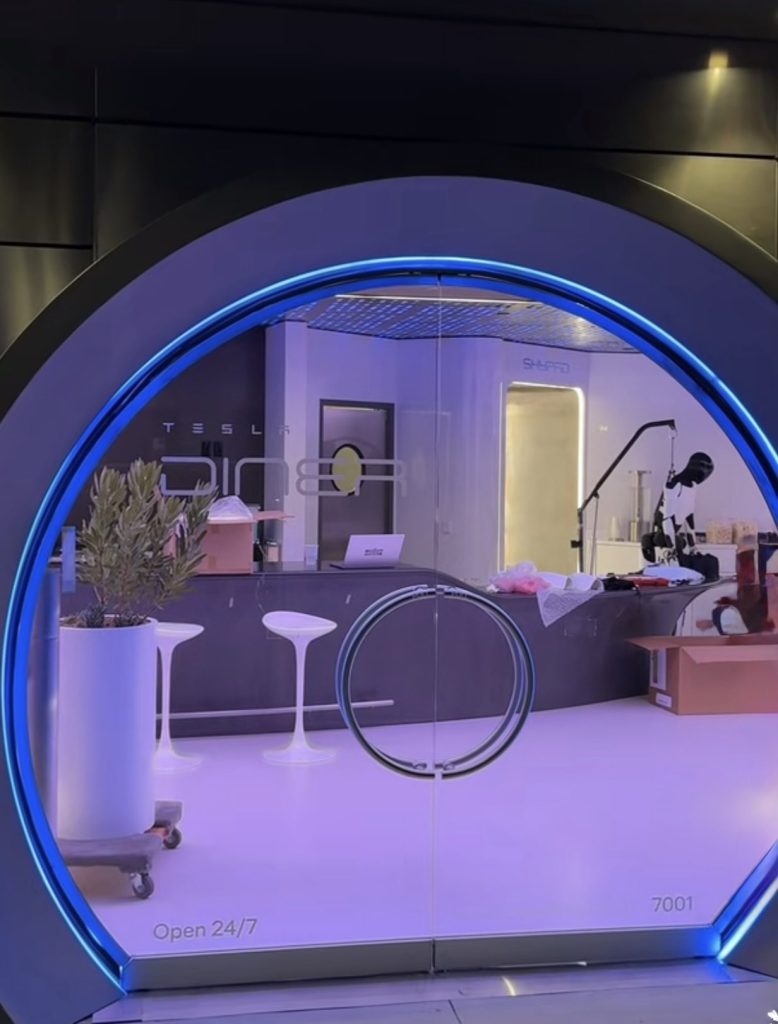
Credit: TeslaKing420 | X
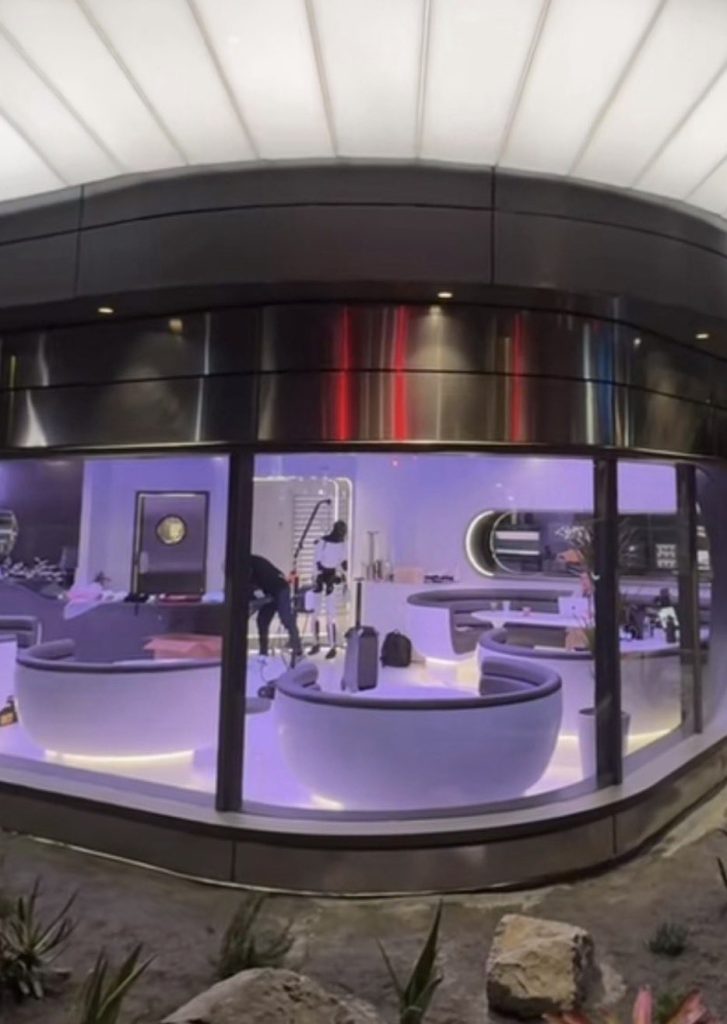
Credit: TeslaKing420 | X
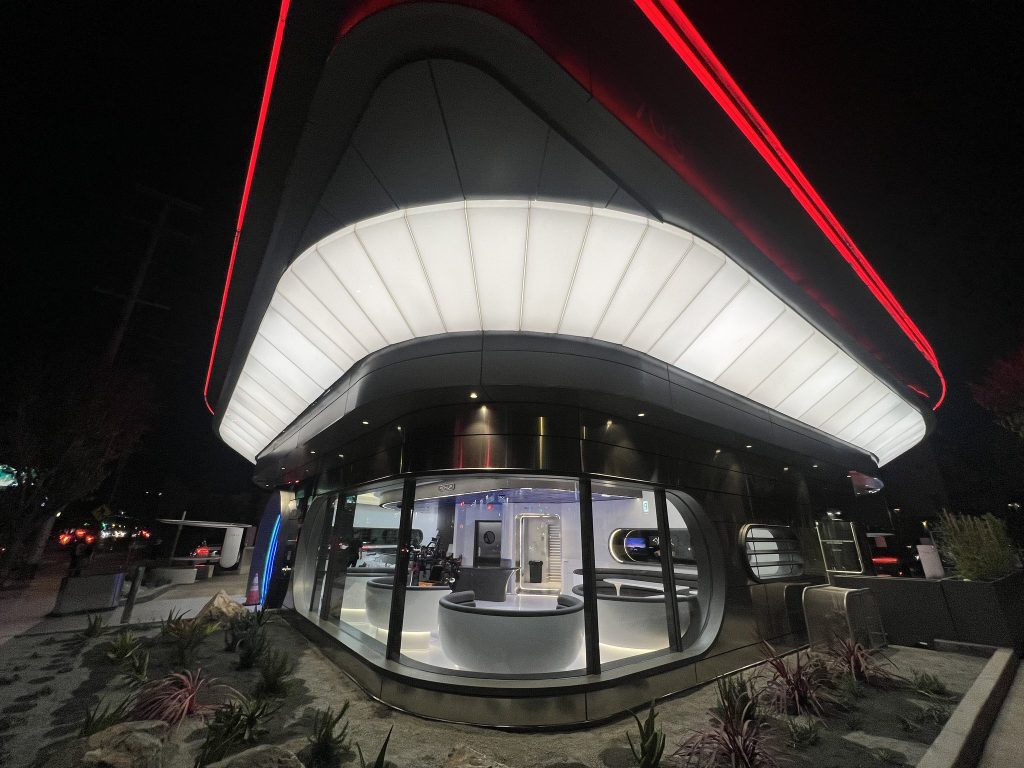
Credit: Brad Goldberg (via Sawyer Merritt on X)
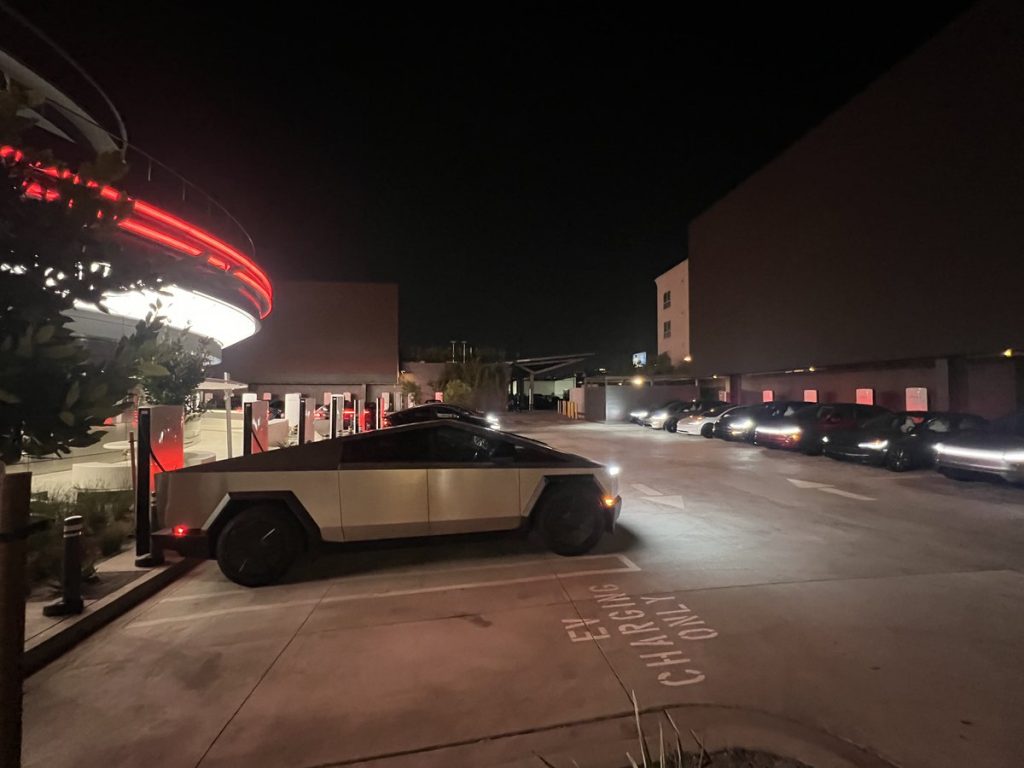
Credit: Brad Goldberg (via Sawyer Merritt on X)
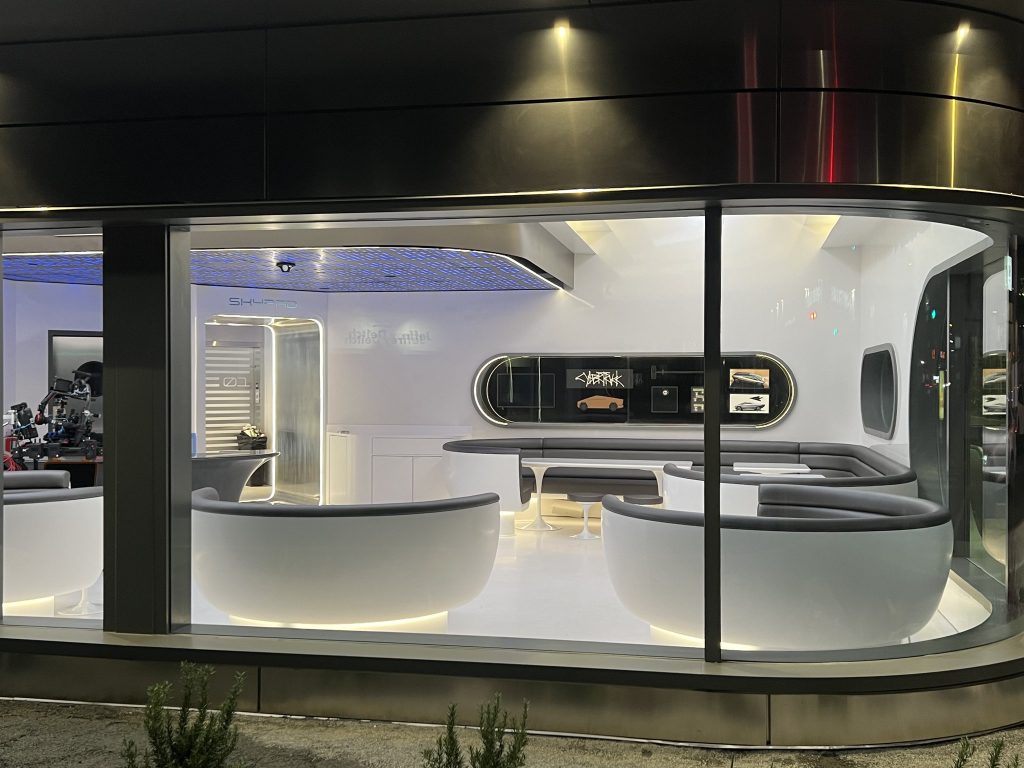
Credit: Brad Goldberg (via Sawyer Merritt on X)
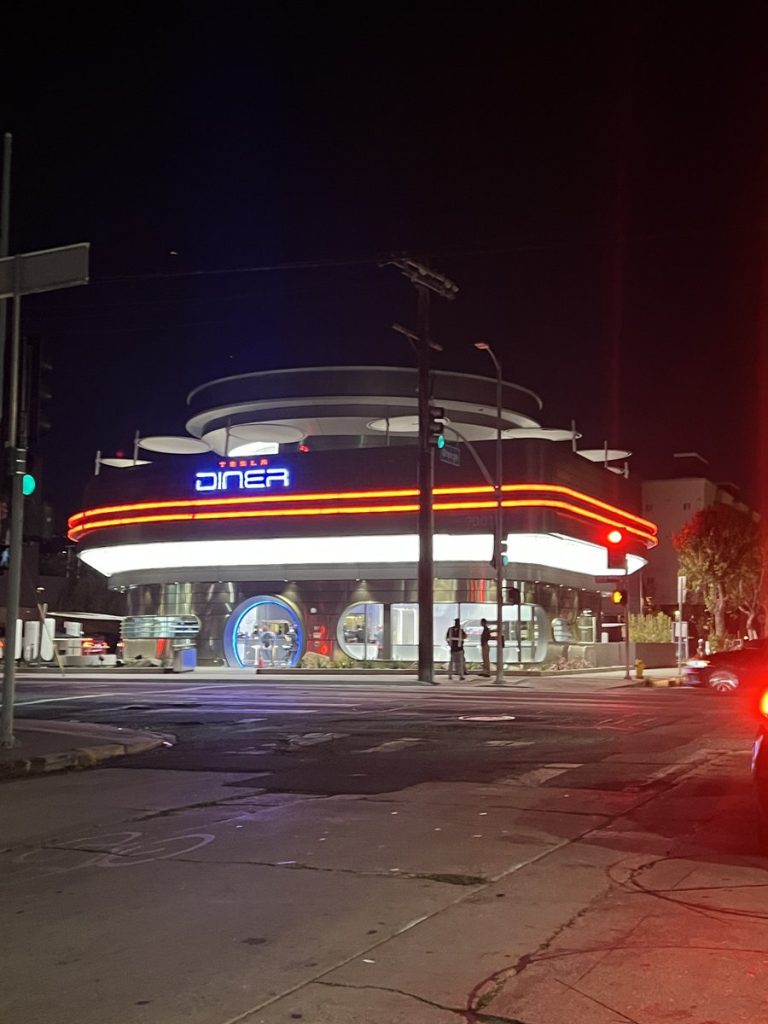
Credit: Brad Goldberg (via Sawyer Merritt on X)
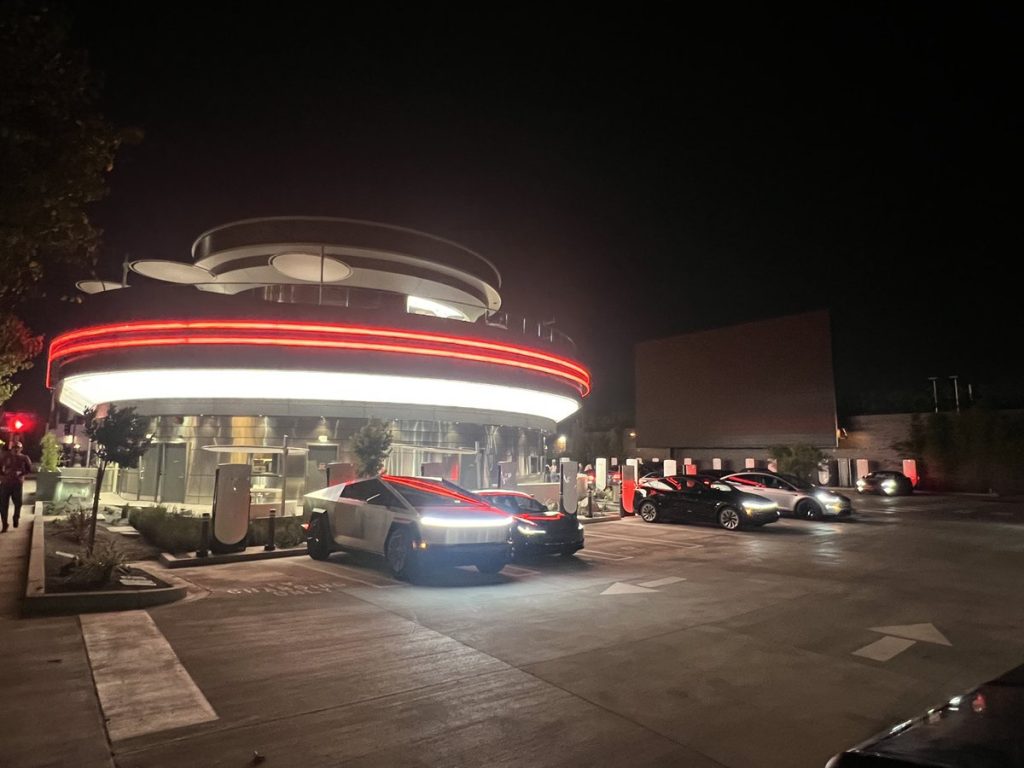
Credit: Brad Goldberg (via Sawyer Merritt on X)
READ MORE ON TESLA’S LA DINER: Tesla readies Drive-In Diner Supercharger for launch with app inclusion
When will the Tesla Diner open to external customers?
While it’s still not open to external customers yet, the news again suggests that the company could be close to an official opening date. Tesla first broke ground on the Diner in September 2023, after receiving a wave of building permit approvals throughout that year. Teslarati also covered much of the construction progress throughout last year, including when crews installed the first and second drive-in screens.
Located at 7001 West Santa Monica Boulevard, the idea was first discussed in 2018 by Musk and a few others on Twitter, featuring 1950s rock and roll, waiters on roller skates, and drive-in movie theater screens playing clips from some of history’s best movies. Notably, the photos of the front doors also show that the site will be open 24 hours a day, 7 days a week, whenever it does end up opening.
Tesla’s progress on Supercharger with diner, drive-in seen in aerial footage
-

 Elon Musk2 weeks ago
Elon Musk2 weeks agoTesla investors will be shocked by Jim Cramer’s latest assessment
-

 News2 days ago
News2 days agoTesla debuts hands-free Grok AI with update 2025.26: What you need to know
-

 Elon Musk4 days ago
Elon Musk4 days agoxAI launches Grok 4 with new $300/month SuperGrok Heavy subscription
-

 Elon Musk6 days ago
Elon Musk6 days agoElon Musk confirms Grok 4 launch on July 9 with livestream event
-

 News1 week ago
News1 week agoTesla Model 3 ranks as the safest new car in Europe for 2025, per Euro NCAP tests
-

 Elon Musk2 weeks ago
Elon Musk2 weeks agoxAI’s Memphis data center receives air permit despite community criticism
-

 News4 days ago
News4 days agoTesla begins Robotaxi certification push in Arizona: report
-

 News2 weeks ago
News2 weeks agoTesla sees explosive sales growth in UK, Spain, and Netherlands in June

